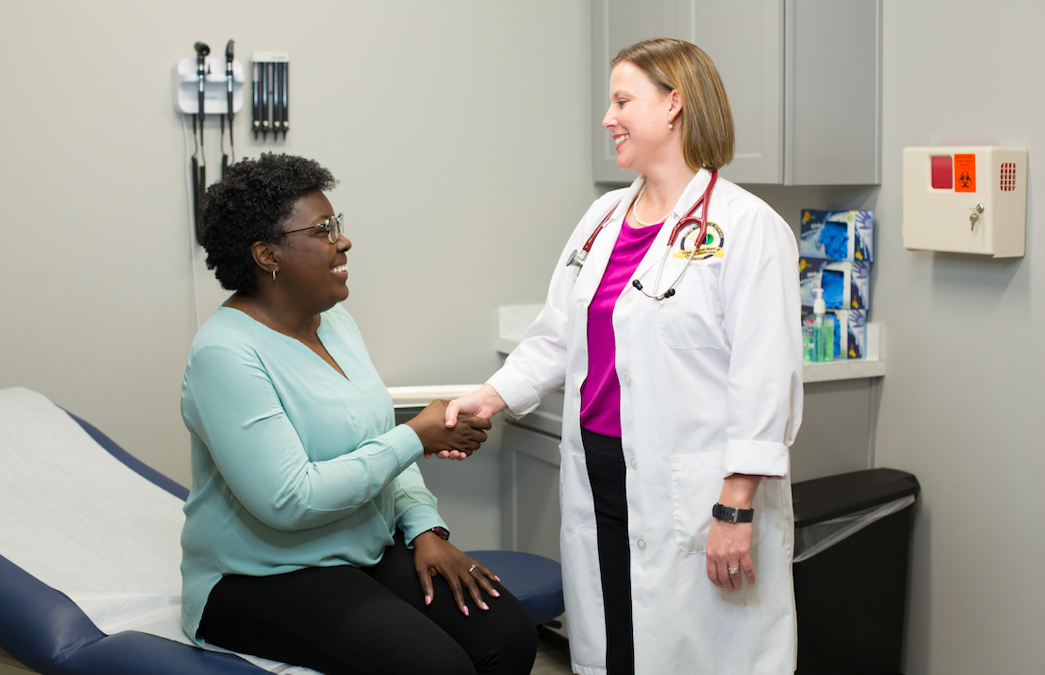While you will be hard-pressed to find a child who looks forward to doctor’s office visits, the same can be said for most adults. Despite their low ranking on one’s list of favorite activities, the importance of routine checkups and preventative screenings cannot be overstated.
Health care screenings are essential to all regardless of age. Knowing when and why to speak with your health care provider is fundamental for living a happy and healthy life.
Annual Physical Screenings
Scheduling regular visits with your health care team is the best way to stay on top of your overall health and wellness. These annual physical screenings function as a general maintenance check on the machine that is your body.
During these visits, your health care provider will typically conduct a range of tests to ensure everything is functioning normally. Visits can include collecting valuable information about your family and personal health history, a complete physical exam, vision and hearing screenings, immunizations and blood work. These visits can also be helpful with lifestyle and overall wellness, including appropriate weight, sleeping habits, diet and exercise.
Yearly checkups allow your health care provider to detect any health issues early, as well as implement any preventative measures or treatments to help you maintain good health.
Wellness visits are recommended at least once every three to five years for men and women under 50 and in good health. Those over 50 should make these visits annually.
The American Dental Association (ADA) recommends dental exams at least every six months.
More specific screenings should be performed along with your annual checkups. The screenings, their frequencies, and the ages they should begin to be given vary between men and women.
Men’s Health Screenings
Cholesterol
Beginning at age 18, men with an elevated risk for heart disease, such as family history, should begin screenings for high cholesterol at least once every five years. Men above 45 should be evaluated more frequently per their physician’s recommendation.
Prostate Exam
Beginning at age 50, your physician will begin regular screenings for prostate cancer. This is conducted through a physical (digital) prostate exam. Examinations may begin earlier depending on one’s family history.
Colorectal Screening
Beginning at age 45, men should receive scheduled colorectal screenings. These can be performed in several ways, including history taking, stool specimens, Cologuard and colonoscopy. These screenings are recommended until the age of 75. Beginning at age 76, your health care provider should determine if additional screenings are necessary.
Additional screenings may include those for diabetes, abdominal aortic aneurysm, lung cancer, depression, and hearing and vision, as well as STD screenings, bone density scans and more.
Women’s Health Screenings
Cervical Cancer
Women between ages 21 to 64 who have a cervix should begin to receive regular screenings for cervical cancer in the form of a Pap smear once every three years. Screening can begin earlier if sexually active. At age 65, your health care provider may determine the frequency or need for this exam.
Colorectal Screening
Beginning at age 45, colorectal screenings are recommended for women up until age 75. Screening methods may include history taking, stool specimens, Cologuard and colonoscopy. Your health care provider should determine if additional screenings are necessary beyond age 76.
Breast Cancer
Beginning at age 50, women should begin screening for breast cancer with regularly scheduled mammography exams. Those with a family history of breast cancer should consult with their physician about beginning screenings earlier.
Bone Density
Women 65 and up should begin receiving bone density tests at least once. This quick and painless procedure is done by scanning the lower back and hips and is used to screen for osteoporosis.
Additional screenings may include those for cholesterol, diabetes, lung cancer and hearing and vision, as well as STD screenings and more.
Family History & Appointments
While there are certain ages when most should schedule their doctor’s visits, these are only guidelines to help one stay on track.
Family history also plays an important factor in determining how often you should have these tests performed. For example, someone whose mother and grandmother have had breast cancer likely has a greater chance of developing the disease themselves and should be tested more often.
The better understanding you and your doctor have of your family medical history, the better you will be able to prepare and, ideally, prevent the development of complications.
Feel Better With Fetter
Fetter Health Care Network is committed to the continuous upkeep and improvement of our community member’s health.
To schedule your appointment with your local Fetter Health Care Network team, visit FetterHealthCare.org/request-an-appointment. For more information on Fetter’s health care services and locations, visit FetterHealthCare.org.

